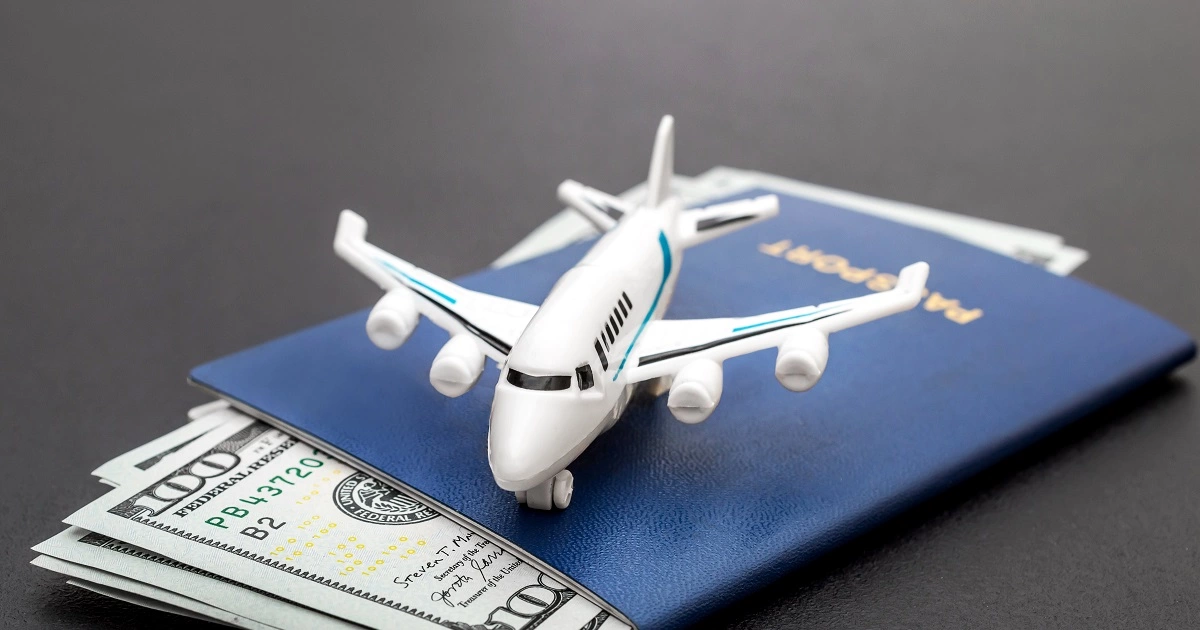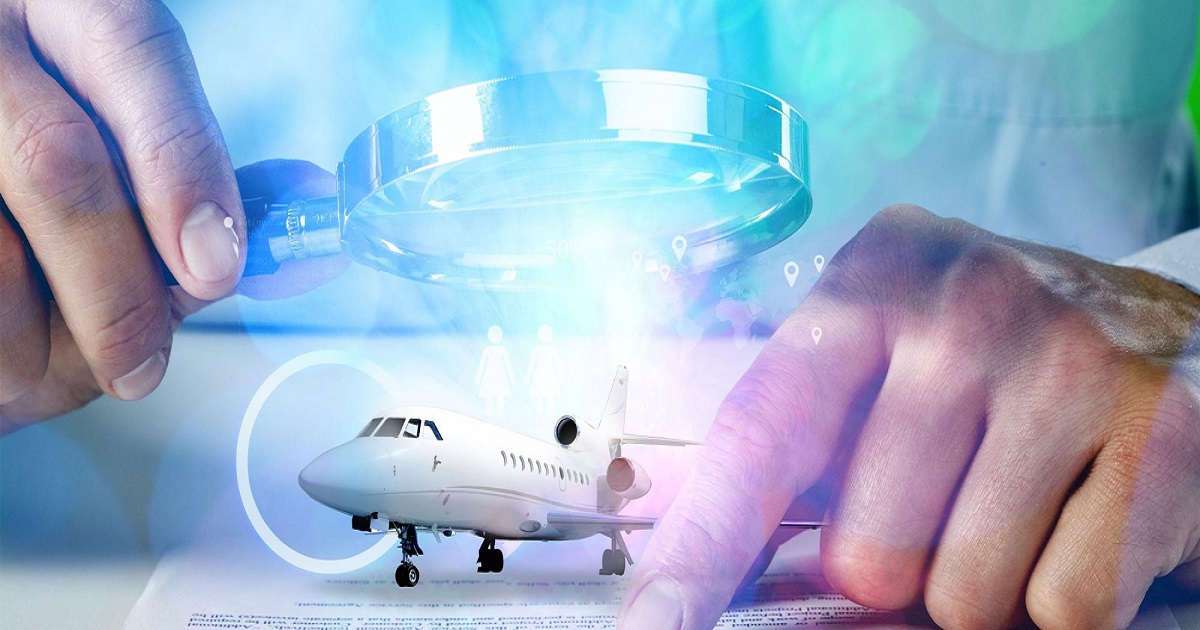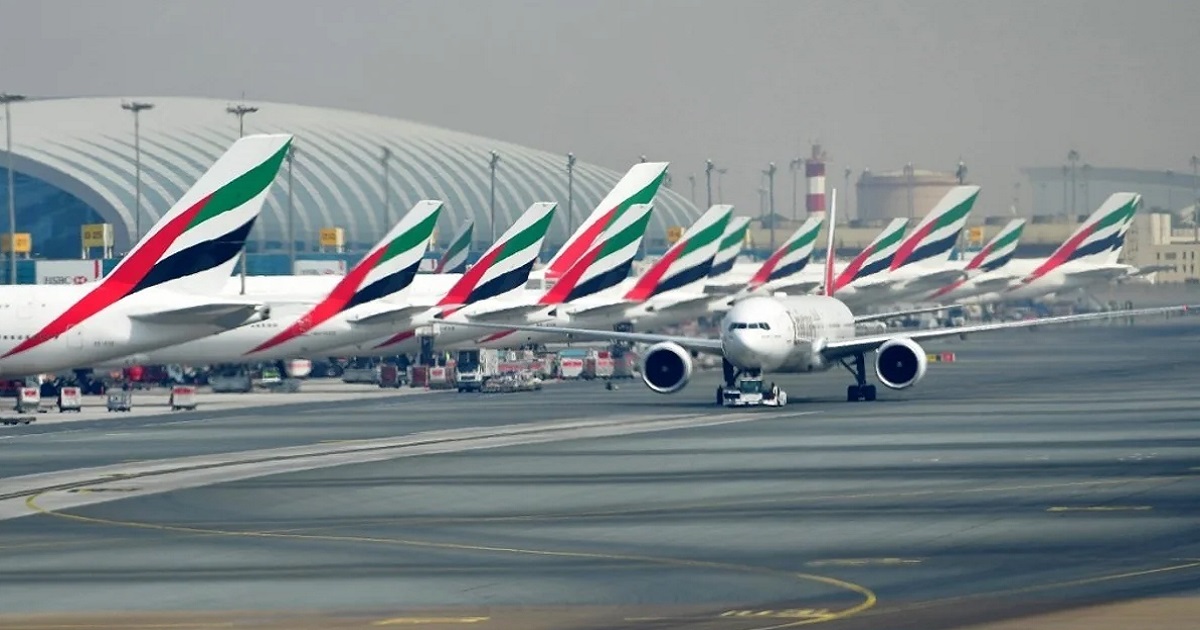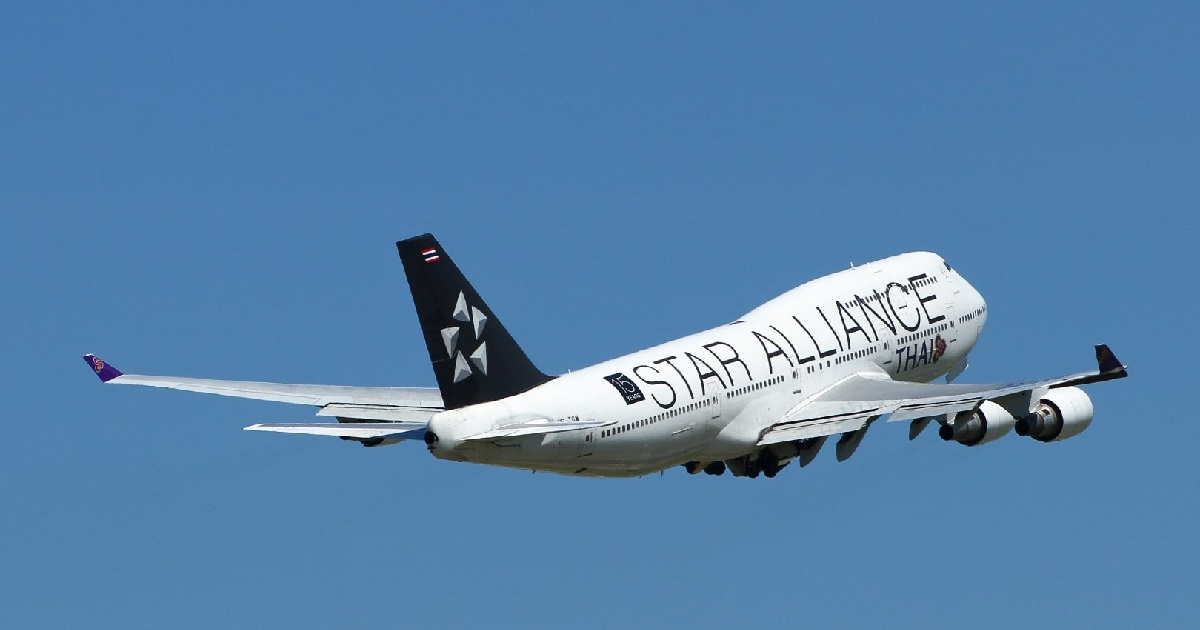
Defense and Space
Article | June 8, 2022
This week, the GE Gas Power team launched season five of Cutting Carbon, their award-winning podcast that focuses on climate change, the basics of what decarbonization is and the technologies behind it. In season five, the team is focused on decarbonization closer to home and invited Arjan Hegeman, GE Aviation’s general manger for advanced technologies, to talk about the future of flight.
Learn more about the role of GE Aviation’s technologies available today and in development for tomorrow to make aircraft engines more fuel efficient and reduce carbon emissions. Open fan, hybrid electric and hydrogen combustion are all discussed by Hegeman and the hosts. Over two episodes, Hegeman also explains the importance of Sustainable Aviation Fuel (SAF), along with the new engine technologies, to help the aviation industry reach its goal of net-zero carbon emissions by 2050.
The Future of Flight is a two-part episode, and can be found as Episode 27 and Episode 28 under Cutting Carbon. You can listen to the podcast here or on your favorite streaming platform!
The aviation industry is at an inflection point for new technology introduction and acceleration of technology development, Hegeman says. GE Aviation is currently developing its next-generation suite of engine technologies, including open fan engine architecture, hybrid-electric propulsion, and advanced thermal management concepts. GE Aviation is also supporting industry initiatives to approve and adopt 100% SAF and is partnering on a new flight demonstration program to test zero-carbon hydrogen fuel combustion.
GE’s ambition is to be a net zero company by 2050, including the Scope 3 emissions from the use of sold products. GE is also committed to being carbon neutral by 2030 in its own facilities and operations, including Scope 1 and Scope 2 emissions.
Read More

Design and Engineering
Article | January 7, 2022
The global airline industry is currently going through unprecedented financial damage. A few factors contributing are high operational costs, increased security costs, low customer satisfaction, low revenue, and frequent dynamic shifts in air travel.
Hence, it’s a high time for airlines businesses to resolve their multitude of issues for its economy to recover. To leverage this goal, the industry should leverage its most high-volume asset—analytics. Analytics will help drive the airline industry's growth rate in the coming years.
It’s because, Developing new data applications will bring a handful of digital marketing opportunities in the next five years. And these applications will bridge the gap in the industry.
Welcome to the New Age of Analytics
This topic of discussion is not new. But the new thing about analytics is that it is changing the airline industry data collection process. Analytics has become an essential part because the pandemic has forced countless non-digital airline businesses to shift to online operations.
Advanced analytics with innovative data technologies is becoming popular due to its numerous applications. To name a few, it provides smart management abilities and a proper decision-making system. So, to get a hand over this, marketers should have a razor-sharp focus to upgrade their analytics.
With advanced analytics, airlines can deliver the right information to the right audience at the right time. And when customers access the right information efficiently, they turn into prospective clients. In addition, by using analytics as part of online operations, airlines can survive without a dedicated offline presence.
With the digital transformation happening in the aviation industry, it at a turning point. The situation now is an “adapt or die” one. This policy is generating opportunities for airlines that are making significant changes to their current old business model. However, such a transformation is only possible when analytical technologies are fully adapted. This way, marketers can easily capitalize on operating online by being agile and have adaptable tools.
How can Marketers Adapt Analytics?
As a marketer in the digital era, you need to organize data with the help of technology. By organizing data, you can easily collect data from channels such as social media, loyalty programs, and other online forums. Here are some to use Analytics to empower digital transformation:
Power of Personalization
Digital technologies offer marketing and sales opportunities in direct and indirect channels. For supplies and buyers, this means they can establish greater contact with consumers. It will result in a significant way to sell and buy more products. However, you can take customer interaction a step further by offering personalized offers and discounts with analytics.
Investing in Loyal Customer Base
The most important digital opportunity comes from loyalty programs. Offering it can provide marketers with substantial amounts of customer information. Additionally, there are three other focus areas where you can use analytics:
Partnership with leading technology providers
Enhancing content
Cost maintenance
Investing in these customer-centric areas using analytics will gradually deliver proven results.
Empowering Strategies using Analytics
The next step is to develop a comprehensive data platform strategy by including a data integration layer. By combining traditional and new data sources, this layer will make a flexible and more accessible data architecture to scale airline industry data. This will allow marketers to gain insights into their changing customer behavior.
Hence, adding a data integration layer will also need considerable effort and investment to deploy a cloud platform, an analytic-data-warehouse layer, and a team that maintains the data platform.
So, what are the Exact Ways Analytics is Going to Help Marketers?
Cost reduction:
The advanced airline industry analysis will help in making cost reductions. Whether it is from fuel consumption, deploying technology, or smart manufacturing, analytics can solve cost-related issues at once. For this, airline businesses must deploy AI systems with machine algorithms, which will help marketers to collect the exact data. Then they can easily analyze the estimations and can reduce them as per the requirements.
Customer Satisfaction
The addition to cost reduction, predictive analysis can help by keeping customers up-to-date in real-time. You can enhance Customer satisfaction by promoting offers based on their demand. Once you can have genuine insights and information about your customers and understand their behavior beforehand, you can approach them with the right message, solutions, and services by giving the right reason to invest.
Most importantly, predictive analytics will help speed up the response rate to customers' queries and solve them in no time. Today the response speed matters because airline customers are constantly shifting their travel behaviors. As a result, they now seek customized approaches compared to the traditional approach.
For example, Delta Airlines deployed advanced predictive analytics with AI. They optimized their operations through innovative customer services. Delta Airlines invested a whopping $600,000 for automation software installation. The investment was successful as they were able to access their data effortlessly and were able to connect with their customers by offering them multitude of offers.
Performance Attributes
Today, airline companies need prompt and accurate performance measurements to take critical, appropriate, and timely actions. Big data analytics can automate certain daily activities. The activities such as prospects' queries, website visitors, landing page hits, and more can be watched daily or weekly. With big data being so effective it will also help you understand the core ingredients for revenue generation. In the end, such advancement will stimulate airline industry data growth.
Risk Protection
This is of utmost importance for the airline industry's growth rate. You can develop various innovative models and strategies and avoid risks while implementing them using Advanced Data Analytics.
The risks could be like a data breach, technical factors, organizational operations, customer data, and more. To counter back these risks, you should have proper strategic or annual safety objectives. Advanced analytics have higher levels of excellence that alleviate performance drifts. It will also help you to achieve and maintain through a proper monitoring and testing system.
For example, British easyJet has diminished its operational challenges using AI. With the help of IT, it used data science to improve its pricing strategy, manage inventory, and lowered risk factors. As a result, the company observed an increase in profits of almost 20% in 2021.
What’s Next for You with Analytics?
Marketers should be astute and apprehensive about Analytics. Understanding the upcoming trends of analytics are vital. In addition, the current situation also demands a holistic approach that supports technology (digitalization). Having appropriate approaches will lead you to stand out in this competitive industry.
Taking advantage of data for your existing or potential customers can help you to recognize more information about their activities. So that you can include more innovative techniques and can attract potential leads before they are gone. With technically sound data analytics you can experiment with different customer-centric strategies like:
Building responsive landing pages that get fit in every screen
Being more flexible with your prospects and enhancing interactions either through social media or a website.
Creating platform-specific content to improve customer interaction.
The strategies mentioned above will help you in collecting more data and curating on-demand content/information. By adopting these strategies, you can provide a data-backed open online platform in which you can easily connect with your customers.
Once you have grabbed the technique for your digital marketing needs, tapping big data solutions will be a much better way than before. Therefore, it is crucial to keep legacy thinking aside and welcome innovation onboard.
Frequently Asked Questions
What is the importance of analytics in the airlines business?
Analytics play a vital role in airline businesses. It helps in cost reductions, which could result in investing in better ways. Also, data helps to avoid breaches, provide safety measures, collect huge amounts of information, and enhances operational functionalities.
Does analytics require proper strategies to function in an airline business?
Yes! To implement analytics in your airline business, you need a strategic approach. Analytics provides statistical analysis. Using it, you can investigate and analyze business performance and give insights about improvement as well.
What are the different types of analytics used in the aviation industry?
There are three types of analytics that airline businesses use:
Descriptive analytics: It tells the current business operation
Predictive analytics: It shows what could happen in real-time
Prescriptive analytics: It shows what should happen in the future.
{
"@context": "https://schema.org",
"@type": "FAQPage",
"mainEntity": [{
"@type": "Question",
"name": "What is the importance of analytics in the airlines business?",
"acceptedAnswer": {
"@type": "Answer",
"text": "Analytics play a vital role in airline businesses. It helps in cost reductions, which could result in investing in better ways. Also, data helps to avoid breaches, provide safety measures, collect huge amounts of information, and enhances operational functionalities."
}
},{
"@type": "Question",
"name": "Does analytics require proper strategies to function in an airline business?",
"acceptedAnswer": {
"@type": "Answer",
"text": "Yes! To implement analytics in your airline business, you need a strategic approach. Analytics provides statistical analysis. Using it, you can investigate and analyze business performance and give insights about improvement as well."
}
},{
"@type": "Question",
"name": "What are the different types of analytics used in the aviation industry?",
"acceptedAnswer": {
"@type": "Answer",
"text": "There are three types of analytics that airline businesses use:
Descriptive analytics: It tells the current business operation
Predictive analytics: It shows what could happen in real-time
Prescriptive analytics: It shows what should happen in the future."
}
}]
}
Read More

Air Transport
Article | July 6, 2022
With rescue flights crisscrossing the globe and passengers keen to get where they are going as soon as possible, will we see the end of hub to hub travel? Has this current aviation crisis signaled the decline of the current model of aviation we know today? One reporter at Simple Flying gives his opinion.
Read More

Business Aviation
Article | December 28, 2021
The aviation industry is going through a lot of technological and operational transitions. Every day, new technologies in manufacturing, airports, passengers, security measures and more are being introduced or being implemented in the entire aviation ecosystem.
5G technology is one of the most critical technologies that is currently raising concerns. 5G technology is becoming a hot topic of discussion for governments worldwide in inferior ways. Many discussions are going on the shelf of safety of consumers. Similarly, there has been rising concern about the new 5G technology in the aviation industry.
Yes. 5G technology promises to bring some of the best opportunities for airlines. But what will be its impact on airline safety? Before we discuss the 5G rollout, let's highlight its ability to benefit the busiest industry globally.
The Ecosystem of 5G
Multiple technologies play a vital role in 5G technology in terms of coverage, such as EDGE, IoT, SD-WAN, and more. The ecosystem is rapidly expanding, even the industry of suppliers to aviation. It includes device manufacturing, network supply and maintenance, system integration, testing, and more suppliers.
IATA says with regard to the aviation industry, a projected $3.9 billion will be invested in 5G by 2026. Moreover, the projections are taking the entire industry to new altitudes. GSA also forecasts that the growth of 5G will be faster than 4G.
The Impact of 5G on the Different Aviation Sectors
The deployments and implementations of 5G can be profitable for every aviation sector if used appropriately. Speaking of the aviation sectors, the new 5G technology will transform the industry in four crucial areas. They are:
Manufacturing
Airports & Airlines
Travel
Security
Manufacturing
The manufacturing sector has massively developed partnerships with telecom players. The partnerships have led to the launch of 5G initiatives.
Nokia and Lufthansa came forward for inspection of engine parts remotely. With AR visualization and 3D technology, customers can have a visual impact on cabin interiors. 5G technology is also being implemented to trace and track systems in aircraft parts and maintain of operations using transmissions, real-time signal processing, and more.
Airports & Airlines
With 5G technology, Gogo Business Aviation is developing new designs for antennas and modems. The designs will enable the world's first in-flight connectivity (IFC) and 5G air-to-ground (ATG) networks by 2022.
“Towards the end of 2022, we will have sites built, and we will start flight testing,”
-Mike Syverson, senior vice president of engineering at Gogo
Gogo's 5G network will be limited to North America. It will be leveraging the existing 250 towers with its current 3G and 4G IFC networks. The 5G network will use spectrum in the 2.4 GHz band with the help of other booming technologies to provide the airplane-to-ground station link with higher bandwidth.
Travel
Viasat Inc. is known globally for offering broadband digital satellite communications, wireless networking services, and satellite communications products.
Delta Airlines has partnered with Viasat for its next-generation Ka-band satellite in-flight connectivity (IFC) solution. Delta intends to integrate Viasat technology into 757-200 aircraft, A321ceo, and the 737-900ER (new aircraft) to provide customers with safe and secure air travel.
Network Security
The European Aviation Safety Agency (EASA) discloses that an average of 1,000 attacks per month occur on aviation systems. Thus, it is becoming a real threat to airport security, safety, and reputation.
SmartSky Networks LLC is a leading satellite solution. It's also a wireless data and networking services provider globally. It caters to the commercial aviation industry. It offers its innovative air-to-ground inflight Wi-Fi network with 5G technology.
In June 2021, Honeywell and SmartSky introduced their high-speed connectivity. They announced it for their business aviation operators in North America. The partnership agreement boosts seamless connectivity in the commercial aviation market.
Looking at these developments made possible by the new 5G technology in the aviation industry, how has it become one of the industry's obstacles in terms of safety?
Let's highlight the picture here.
Aviation Has Expressed a Serious Concern
The Federal Aviation Administration (FAA) has warned about significant safety concerns in the 5G wireless network setup roadmap. The plan for theusage of C-Band spectrum is the prime reason. 5G network operations can interfere with the radar altimeter performance of aircraft.
"It is engaging with other agencies. So that aviation and 5G cellular technology can safely coexist."
-A Federal Aviation Administration spokeswoman
But with the modifications in the manufacturing processes of aircraft, the industry is encouraging manufacturers. Therefore, the manufacturers could conduct tests for 5G interference and modify aircraft designs.
5G Still Provides Hope for a More Friendly Flying Future
Aviation has a 5G rollout despite having no proof. The rollout is about interfering with safety concerns. Instead, 5G in aviation is burgeoning the importance of safety and security more efficiently. The emphasis on safety and security is now even more powerful. Pilots have been equipped with high communication tools with air control towers, especially in weather or technical challenges.
The new 5G technology is way near to providing superior in-flight bandwidth connectivity while improving operational efficiency. It is going to improve overall operational efficiency. Passengers will be able to take advantage of high-speed internet on planes. Also, business passengers can conduct their business activities while flying and saving precious time and effort.
Frequently Asked Questions
Is the new 5G technology harmful to airplanes?
According to the FAA, aviation operators should be prepared for the possibility that 5G technology could interfere with transmitters. The effects of 5G could cause certain safety malfunctions for airplanes. This could affect flight operations as well.
What are the disadvantages of 5G in aviation?
Aviation is getting benefits from 5G technology. But there is always the other side of the coin. So, the disadvantages could be as follows:
Obstructions in connectivity
High costs of technology
Operational hindrance
Unmatched frequencies
What is the market size of 5G in the aviation industry?
The overall market size of 5G in the aviation market was valued at $698.45 million in 2020. Now, it’s projected to extent $4,682.12 million by 2030.
Read More